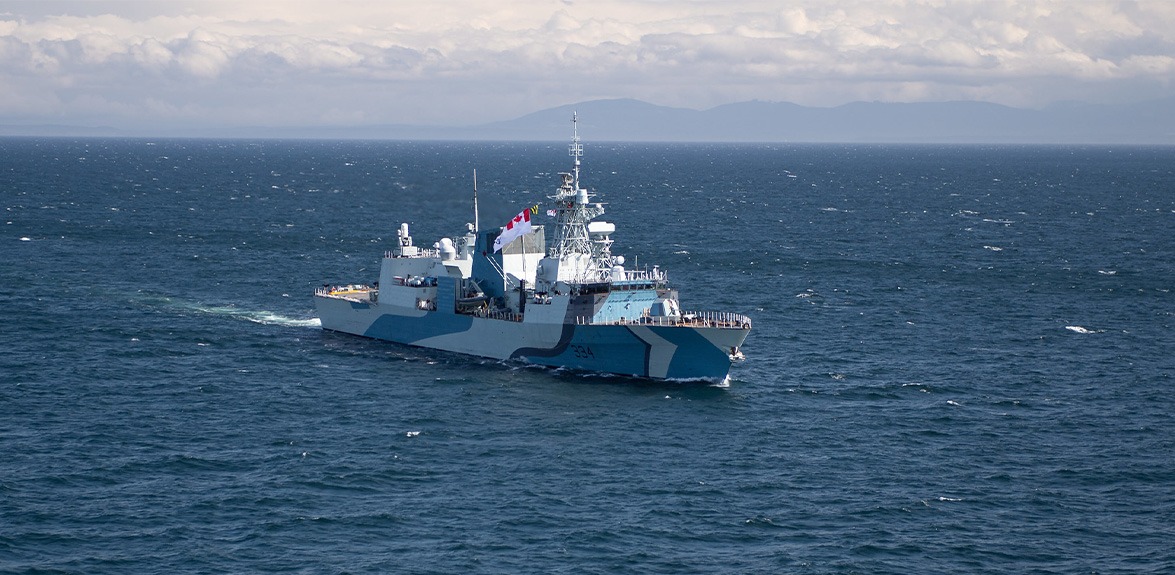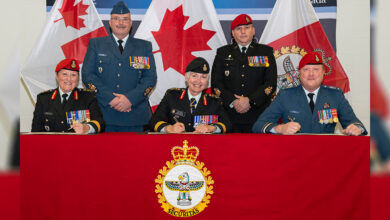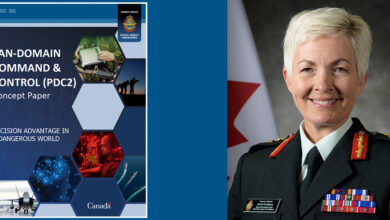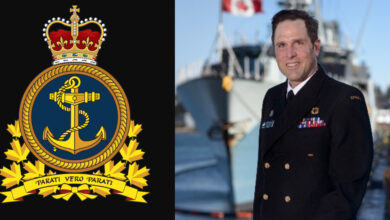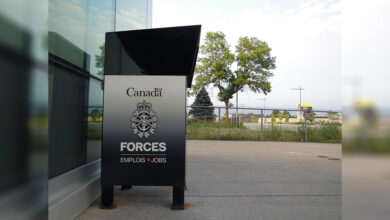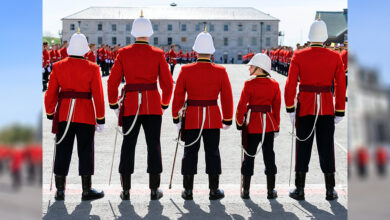Policy
Royal Canadian Navy release new rank designation
Above image: HMCS Regina sails past the Greater Victoria Shoreline en route to Hawaii for the Rim of the Pacific Exercise (RIMPAC) August 6, 2020. Photo by: Captain Simon Wilson, ACSO, 443 Maritime Helicopter (MH) Squadron, courtesy of Canadian Armed Forces.
After 18,000 respondents completed a survey, the Royal Canadian Navy (RCN) has chosen a new English rank designation for its junior ranks, resulting in more gender-neutral terms than the current titles.
“By adopting gender-neutral designation for junior members of the Royal Canadian Navy, we demonstrate to all Canadians that the Canadian Armed Forces will welcome anybody who wants to serve their country and uphold the values of inclusion and diversity. We will continue to work to build a diverse force that is representative of the Canadians they protect,” said Harjit S. Sajjan, Minister of National Defence in a press release.
New Rank Designation
The RCN’s junior ranks will soon be known as Sailor Third Class (formerly Ordinary Seaman), Sailor Second Class (formerly Able Seaman), Sailor First Class (formerly Leading Seaman), and Master Sailor (formerly Master Seaman).
The changes will retain the history of these roles and align the English rank designation with the current ranks in French. These new rank designations will be in effect upon the issuance of a CANFORGEN in early September.
The new rank designation decision was shaped by the clear preference of the junior ranks for sailor classes.
The changes will retain the history of these roles and align the English rank designation with the current ranks in French. These new rank designations will be in effect upon the issuance of a CANFORGEN in early September.
Once in effect, the junior ranks will begin referring to shipmates using the new rank designations.
Chief of the Defence Staff noted more inclusive CAF
Chief of the Defence Staff General Jonathan Vance stated, “The Royal Canadian Navy, our senior service, continues to adapt to better reflect Canadian society. Today’s announcement of changes to junior ranks nomenclature is just one example of how we continue to work to remove barriers to a more inclusive Canadian Armed Forces.”
The press release noted diversity and inclusion are viewed as a source of strength and flexibility, and play a pivotal role in making the RCN a modern, forward-looking organization.
Vice-Admiral Art McDonald, Commander RCN, says the RCN has profited immensely from the dialogue regarding the rank change initiative this summer.
He continued, “We emerge from it with a greater insight into who we are, including the sobering reality that we all need to do more, individually and collectively, to be diverse, inclusive, and welcoming. More positively, we can now take satisfaction in knowing that through this initiative we have taken another important and far from symbolic incremental step in ensuring that the RCN remains the modern Service that all shipmates deserve – indeed, that our nation deserves.”


